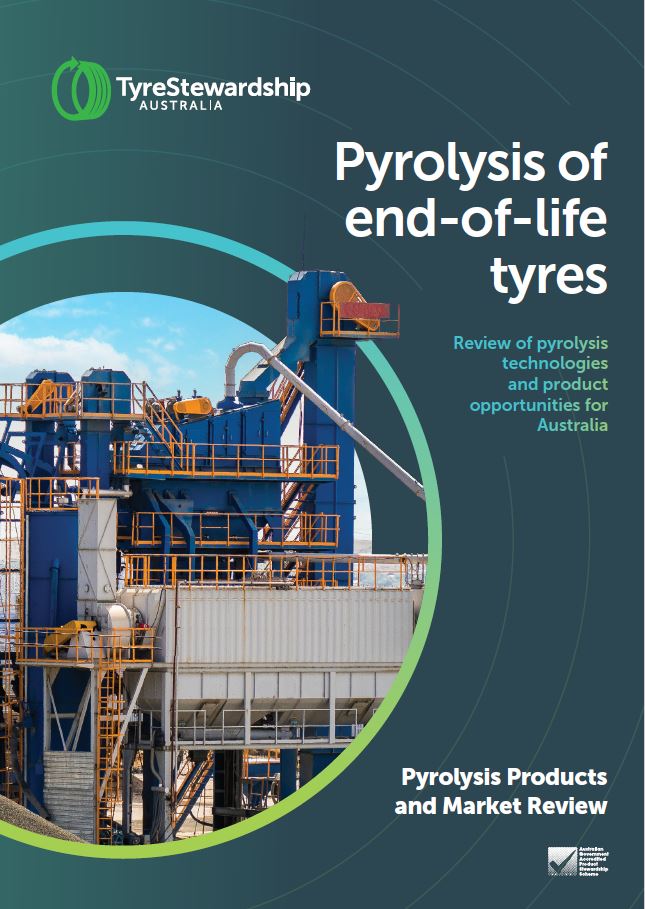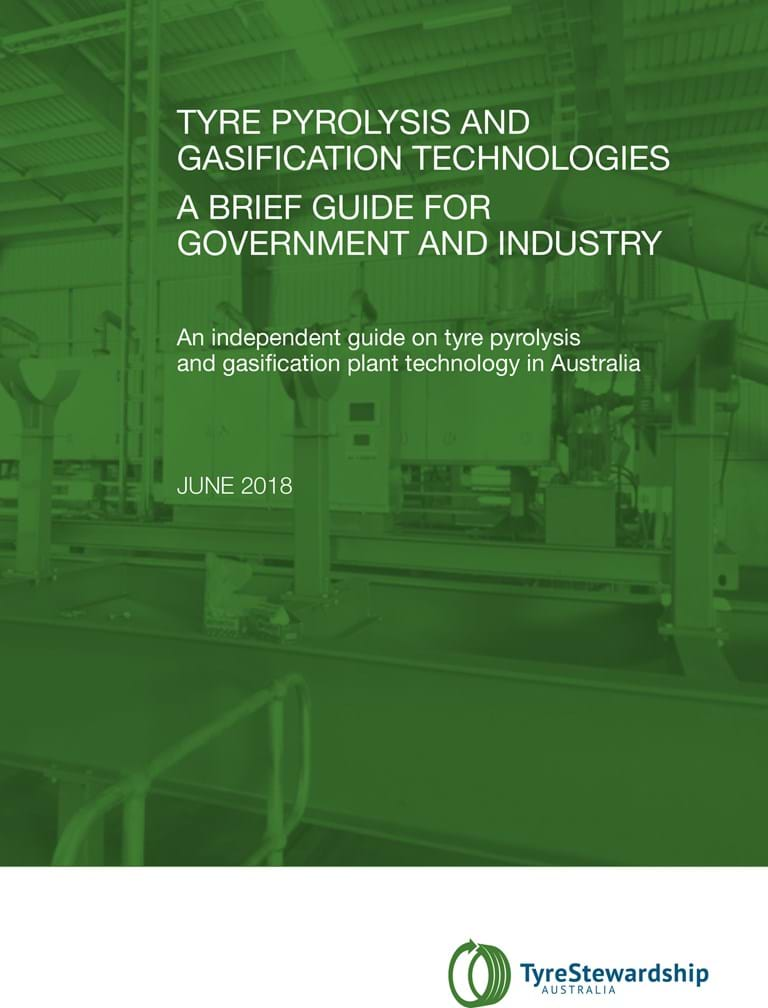Pyrolysis of end-of-life tyres
Review of pyrolysis technologies and product opportunities for Australia
Pyrolysis is one of the options to process end-of-life (EOL) tyres around the world. Pyrolysis, in this context, refers to any technology that decomposes EOL tyres or similar rubber products in a closed system using heat and no oxygen or air. This thermal decomposition process produces oil, gas, and carbon-rich solid fractions.
This technical report outlines the unique elements of different technologies and outputs so that readers can:
- identify the different types of tyre pyrolysis
- differentiate it from other thermal processing technologies
- understand the types of outputs tyre pyrolysis produces
- assess the markets for these outputs and any post-processing required
Currently in Australia and overseas, there are many approaches to pyrolysis with no single technology achieving market dominance. For organisations considering setting up pyrolysis operations, the different technologies and potential markets for these materials are of critical importance, to ensure processed tyre materials end up in sustainable outcomes. While Australia still falls short in recovering all its tyres, any emerging and alternative management approaches warrant consideration, and up-to-date information to inform decision-making.
The report can be viewed and downloaded here.
This report provides an overview of thermal processing technologies, as requested by TSA stakeholders, and complements a previously published Independent Guide on Thermal Processing Technologies (2018) which can be viewed and downloaded below.
Independent Guide on Thermal Processing Technologies
Although there are several markets for recycled tyres in Australia, there are still large numbers of end-of-life tyres that are not recycled.
Newer technologies like thermal processing, otherwise known as pyrolysis and gasification, are emerging for processing used tyres into separate various organic components. Although this technology has been around for some time, there is limited independent information to inform decision-makers and other interested parties.
Therefore, TSA in conjunction with the Department of Environment and Science Queensland and Sustainability Victoria, have undertaken an independent study to establish an industry guide focused on increasing knowledge and identifying potential issues before approval, funding or the building of a plant in Australia.
The guide document can be viewed and downloaded here.

